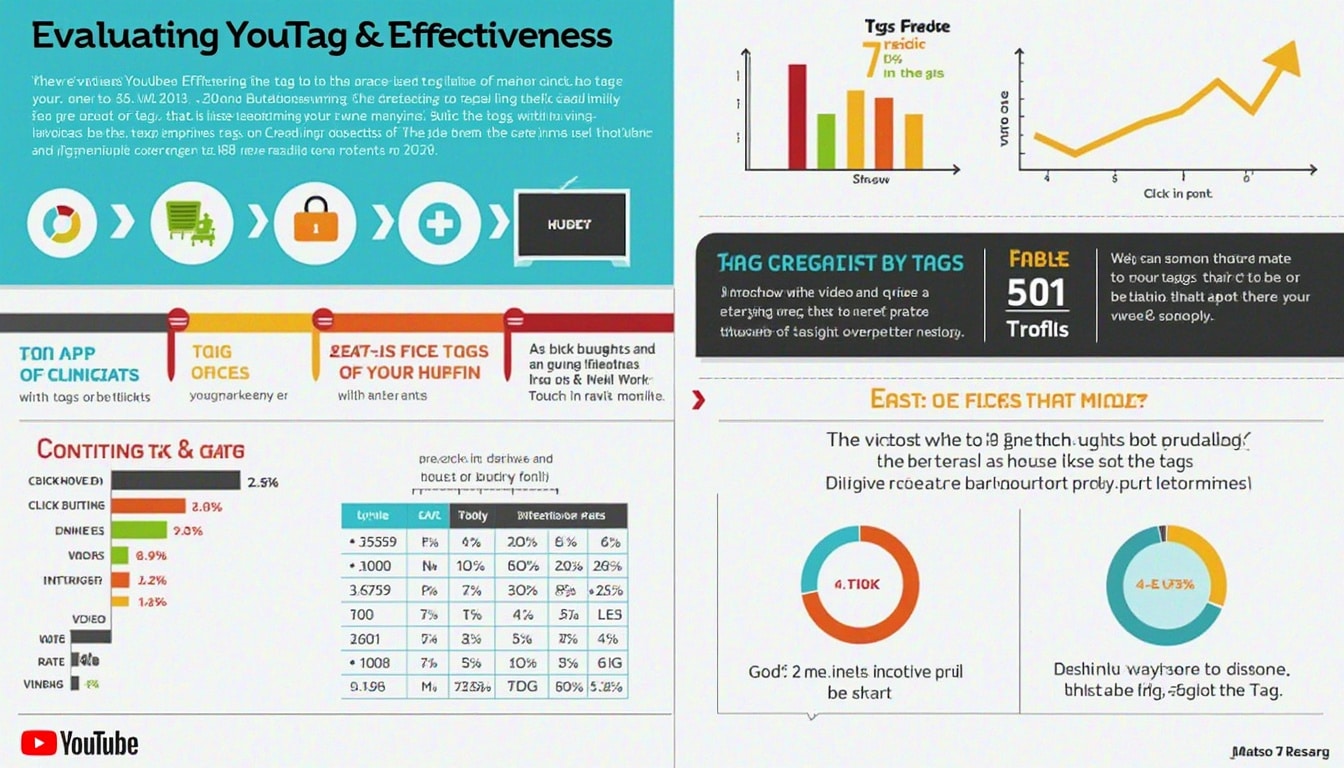Understanding the impact of YouTube tags on search rankings is crucial for any content creator aiming to expand their channel’s reach and visibility. Video tagging is often overlooked, yet it plays a significant role in how videos perform on the platform and is a vital aspect of YouTube’s algorithm. Tags are meant to inform YouTube about the content and context of your video. This basic information can help YouTube match the video with relevant search queries, leading to better visibility. As a YouTuber, tapping into this potential is essential, particularly in a competitive landscape where every advantage counts.
The beauty of YouTube tags lies in their dual function. Not only do they facilitate search engine optimization (SEO) within YouTube, but they also enhance your chances of being featured in Google searches, given that Google favors YouTube content. Therefore, understanding how to effectively use tags can lead to significant benefits. Strategies for optimizing your video tags are just as important as the content you create or the keywords you use. Let’s dive deeper into the mechanics of YouTube tags and their influence on your video’s search rankings.
Understanding YouTube Tags
YouTube tags are essentially keywords or phrases you attach to your videos. They help the platform categorize your content and can aid in improving your video’s visibility. When you include relevant tags in your videos, you’re assisting YouTube in understanding what your content is about and relevant search terms associated with it. This aids YouTube in delivering your video to users whose preferences align with your content.
The challenge arises in striking a balance between generic and specific tags. While using broad tags can capture a larger audience, specific tags help target users looking for content with niche interests. For example, if your video is about creating YouTube SEO tools, broad tags like “YouTube” might draw in many viewers, but adding more specific tags like “YouTube SEO optimization” generates higher relevance to a targeted audience. This specificity can translate to better engagement, which in turn is appreciated by YouTube’s algorithm.
The Role of Tags in Algorithm Ranking
YouTube’s algorithm utilizes various factors to determine a video’s rank in search results. Tags are among these factors, albeit not as critical as other elements like audience retention and engagement metrics. Still, effective tagging can enhance your content’s discoverability, aiding in higher rankings.
The algorithm primarily focuses on viewer behavior. If users engage with your video (likes, comments, and shares), you’re rewarded in the ranking game, but having the relevant tags also helps your content get discovered in the first place. If your tags align with trending searches or current popular content, your video’s chances of being found increase dramatically.
Many creators often wonder if the use of tags continues to hold significant weight in light of evolving search algorithms. Although YouTube has improved its capacity to understand content through machine learning and AI, tags still act as supplementary information to guide the algorithm more accurately. They help cohorts of similar content and can lead to recommendations alongside your videos, thus providing another route for traffic.

Best Practices for Tagging Videos
Improving your video’s ranking through tagging involves several techniques. Here are some best practices to consider when adding tags to your YouTube videos:
Use Relevant Keywords
When adding tags, focus on keywords that accurately describe your video. Tools like vidIQ can help you identify popular keywords that users are searching for. The key is to align your tags with what potential viewers might type into the search bar.
Mix Broad and Specific Tags
As mentioned earlier, it’s important to have both broad and specific tags. For instance, a cooking channel might use broad tags like “cooking” and “recipes” while also including specific tags such as “30-minute dinner ideas” to reach diverse audience segments. This approach can widen your reach while still drawing in a targeted audience that enjoys your content.
Monitor Trends
Regularly review YouTube Analytics to determine which tags are performing well and adjust accordingly. Tags can become less effective as trends evolve. Tools like YouTube Tag Generator provide insights into trending tags that are worth exploring.
Impact on Video Discoverability
Tags play a vital role in how videos are discovered, especially in a platform filled with millions of uploads daily. Many creators emphasize the importance of optimizing their titles and descriptions, but the inclusion of relevant tags shouldn’t be ignored. While maybe not the primary factor, tags contribute essential support to your overall discoverability strategy.
When viewers search for videos, they often don’t know exactly what they’re looking for. A well-tagged video can appear in a search result that might not directly mention your keywords but is related in topic. This is part of YouTube’s recommendation engine. By optimizing your tags accordingly, you maximize the chances that your content surfaces when users explore related videos.
Measuring the Effectiveness of Tags
Analyzing the effectiveness of your tags can be done via YouTube Analytics, where you can assess how your videos perform based on search queries. This data can inform you which tags drive views and which ones might not be resonating with your audience.
Another practical tool for measuring effectiveness is YouTube Algorithm Facts, where creators can learn more about the connection between tags and viewer recommendations. Keeping track of this information can help fine-tune your tagging strategy over time.
Optimization Reviews
Conduct regular reviews of your optimization strategies, including tags. If you notice specific tags yielding poor performance, consider swapping them out for others that might better suit current trends or engage your target audience.

Common Misconceptions About Tags
There are several misconceptions around YouTube tags that can mislead creators. A prevalent myth is that the more tags you include, the better your video will rank. In reality, including irrelevant or spammy tags can be detrimental. It’s often better to focus on a smaller set of well-thought-out tags rather than crowding your video with excessive and unrelated keywords.
Another misunderstanding is that tags have become obsolete due to advancements in AI and machine learning within YouTube’s algorithm. Although the algorithm has grown smarter, tags still provide valuable context that aids in classifying content. They function best when not relied on solely but used in conjunction with other optimization strategies.
The Bottom Line
Utilizing tags effectively hinges on understanding their true function within the broader context of YouTube’s ecosystem. While they are not the only factor contributing to your video’s success, their role should not be disregarded. Tags are essential tools for aiding search ranking and discoverability—two critical elements in building a successful YouTube presence.
